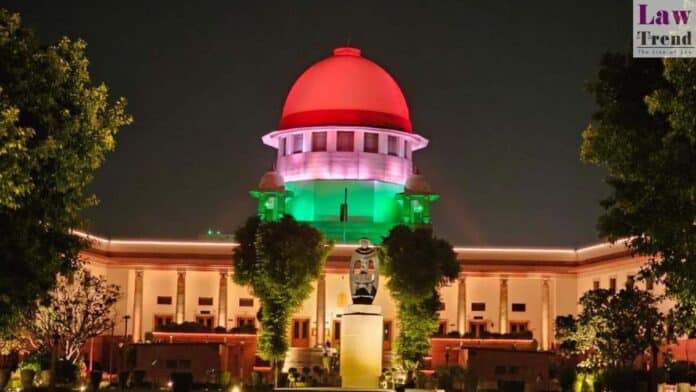Larger Supreme Court benches will soon commence hearing long pending cases including those related to money bills, minority status of the Aligarh Muslim University (AMU), the speaker’s power to disqualify lawmakers and the scope of legislative privileges.
A seven-judge bench headed by Chief Justice D Y Chandrachud on Thursday took up six seven-judge and four nine-judges matters for consideration and said it will pass a common procedural order to ensure that these cases are ripe for final hearing whenever they are taken up in the coming weeks.
Following are some of the important cases:
One of the matters titled as N Ravi and others versus Speaker, Legislative Assembly, Tamil Nadu raises the question about whether fundamental rights override parliamentary privileges.
The case pertains to 2003 when journalist N Ravi and others had approached the top court after the Tamil Nadu Assembly speaker, K Kalimuthu, ordered their arrest for alleged breach of privilege and contempt.
The top court had then stayed the arrest of six journalist and later referred the matter to a seven-judge bench in view of conflicting verdicts. One of the judgments had held that fundamental rights should prevail, while the 1965 verdict said fundamental rights were subservient to parliamentary privileges.
Another batch of petitions pertain to the controversy surrounding the minority status of the Aligarh Muslim University.
The top court had on February 12, 2019 referred to a seven-judge bench the issue of determining the correctness of the minority status granted to the university.
The then UPA government had filed an appeal against the 2006 verdict of the Allahabad High Court holding that the varsity was not a minority institution.
The varsity administration had also filed a separate plea against the high court verdict on the issue. Later, the NDA government told the apex court in 2016 that it will withdraw the appeal filed by the erstwhile UPA dispensation.
Another important matter, which a seven-judge bench will hear, relates to the controversy around money bills. Several pleas were filed after the government introduced legislations like the Aadhaar Bill and even amendments to the Prevention of Money Laundering Act (PMLA) as money bills, apparently to circumvent the Rajya Sabha where it did not have majority.
In November 2019, a five-judge bench of the apex court had referred to a larger bench the issue of examining the validity of the passage of the Finance Act, 2017 as money bill.
Another batch of pleas relate to reconsideration of a five- judge bench verdict of 2016 in Nabam Rebia case pertaining to the speaker’s power to disqualify MLAs.
In 2016, a five-judge constitution bench, while deciding the Nabam Rebia case of Arunachal Pradesh, had held that the assembly speaker cannot proceed with a plea for disqualification of MLAs if a prior notice seeking the speaker’s removal is pending before the House.
The judgement came to the rescue of the rebel Shiv Sena MLAs led by Eknath Shinde, now the chief minister of Maharashtra.
The party’s Uddhav Thackeray faction had sought their disqualification even when a notice of the Shinde group for the removal of Maharashtra Assembly Deputy Speaker Narhari Sitaram Zirwal, a Thackeray loyalist, was pending before the House.
The apex court also took up four nine-judge bench matters for issuing procedural directions.
Also Read
“… The idea is to get these matters ready for hearing. We will pass a common order in all these matters in terms of the circular of August 22, 2023 that the compilation of pleadings, documents and precedents that must be all filed within say… we will give three weeks to everyone,” the CJI said.
“We will appoint nodal counsel in every matter who will then prepare a common compilation,” said the bench, also comprising Justices Sanjay Kishan Kaul, Sanjiv Khanna, B R Gavai, Surya Kant, J B Pardiwala and Manoj Misra.
The bench told the advocates appearing in these matters to give the names of nodal counsel in each case.
Senior advocate Kapil Sibal, who is appearing in some of these matters, requested the bench to indicate the dates for hearing in advance so lawyers could prepare their case.
The CJI said he would look at the calendar of benches for this.
The bench said the lawyers may indicate the estimated time required to argue a matter.
Many of these matters have been pending for 20 years, it noted.




